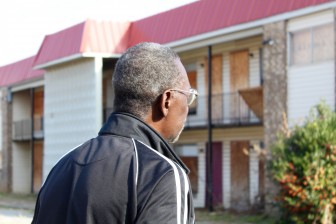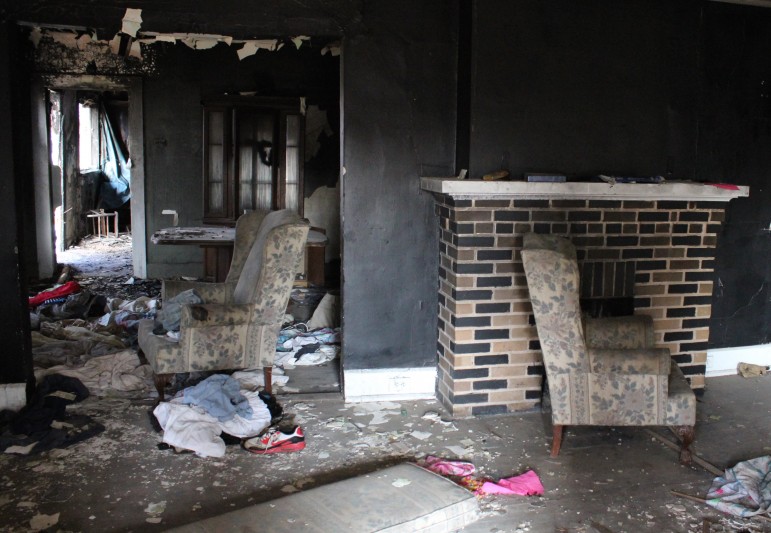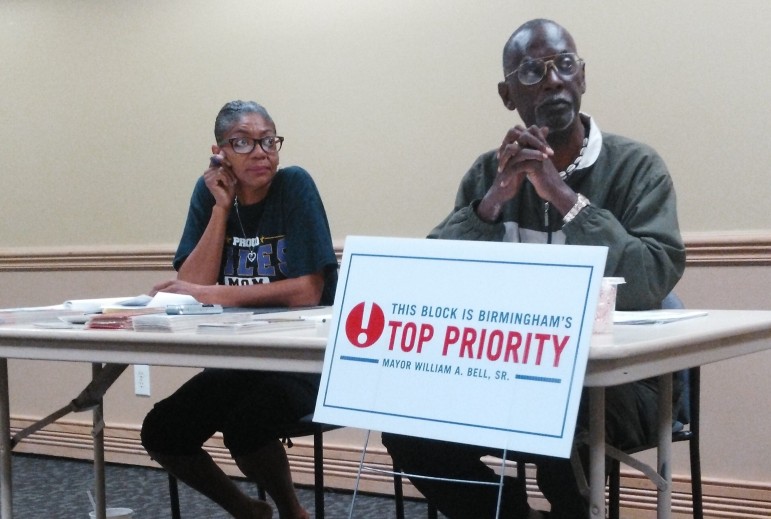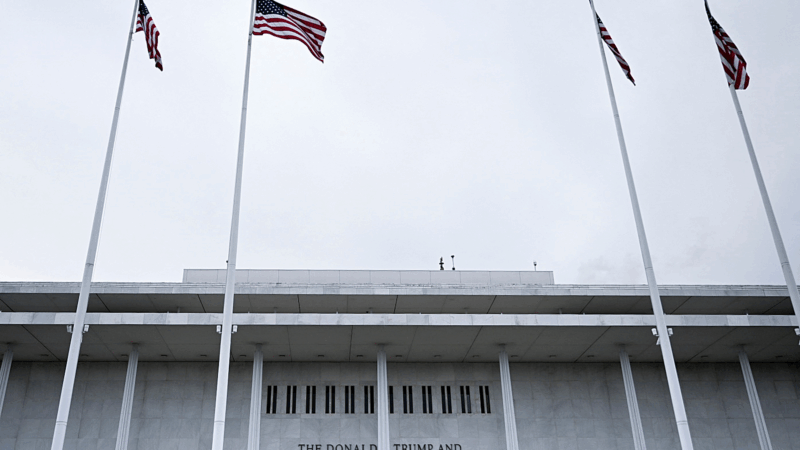Birmingham’s Blight – Ravaged Inner City Communities Ready for Change
Birmingham has received national attention for its booming downtown revitalization and new development projects. But that’s not the whole story. Less than a mile from downtown gems like Railroad Park and Regions Field, inner city neighborhoods struggle with decaying, abandoned homes and overgrown vacant lots. Birmingham’s most recent budget devotes $6.5 million to tackling these problems.
The View From North Titusville
North Titusville, A small group gathers for a neighborhood meeting in North Titusville. From the front of the room President John C. Harris stands tall. He holds up a white yard sign and announces to the audience, “If you see this sign on your block, it it to let you know that your block is a priority,” says Harris.
Harris is talking about city’s plan to eliminate blight, something everyone in his community wants to know more about. In North Titusville, almost every street is littered with burned out and empty homes. Harris has lived in the area his whole life. He has watched many residents give up on the neighborhood and leave. “I chose to stay here and I’ve been fighting a battle, you know, for years,” he says.
Harris keeps meticulous record of vacant homes and empty lots in North Titusville, and regularly lobbies the Birmingham City Council to bring attention to the problem. He says these empty buildings are an eyesore, and they attract crime to the area.
“We’d rather see a vacant lot than to see a house sit here where you got drug activities, prostitution,” Harris says. “In that house police found a guy that had been there two days with a needle in his arm.”
The Extent of the Problem
The city is finally taking notice. John Colón is the director of the Department of Community Development. He says change starts with the city getting rid of abandoned structures. According Colón, Birmingham currently has over 16,000 deserted, tax-delinquent properties. Colón says the sheer magnitude of the problem is unique. “I think it’s important to note that we’re attempting to do in Birmingham is unlike anything that’s been done in the country,” he says. “And possible has never been a part of the discussion; we’re saying we don’t have a choice, our city is under siege right now.”
Birmingham Mayor William Bell agrees. He adds that up until recently, the city’s options were limited.
“We could condemn it and go in and tear the house down. But we couldn’t do anything else with the property,” Bell explains. “The problem with doing those things is that it would be a recurring cost to the city if we have not come up with a plan long-term to deal with it.”
A Plan for Action
Mayor Bell launched the RISE (Removing Blight, Increasing Property Values, Strengthen Neighborhoods, and Empowering Residents) initiative in 2013. A main component is the Land Bank Authority. Land banking programs are used throughout the country, helping cities like Detroit, Chicago, and Seattle tackle years of blight. Birmingham received the ability to create a land bank in 2013; the city council approved the initiative in 2014, and Bell says the program is now kicking into high gear.
Bell explains how the initiative works. “We can take that property or that house if it has not had the property tax paid on it in a 5 year period of time, gain control over that property and then put it back to a productive use,” he says.
Essentially, the Land Bank Authority clears up property titles, so they can be transferred to someone else. A central aspect is the Side Lot Program, which allows residents to purchase neighboring lots at a low cost. Heager Hill is the Chairman of the Authority. He says the group’s current mission is to raise awareness in the community. “Right now we are more intent on trying to get homeowners and people interested in buying the properties, and the side lots,” he says.
Hill says residents have complained about blight for years. The Land Bank Authority finally offers a solution. “We are happy that we have this program, and we are gonna do all we can to move it forward with the help of the city,” Hill adds.
Hoping for Change
In North Titusville, John Harris says he is ready. From his records, there are more than 300 abandoned properties in his neighborhood alone. Last year, the city agreed to demolish 19 of them. Bringing the neighborhood meeting to a close, he remains optimistic, claiming, “10 years from now, everything goes as it should, you will see a new and different Titusville.”
He says that, despite the fact that most of those 19 vacant homes are still standing. But Harris thinks the city means it this time, and hopes 2016 will be the year he finally sees change.
Veteran actor T.K. Carter, known for ‘The Thing’ and ‘Punky Brewster,’ dies at 69
T.K. Carter gained fame as Nauls the cook in John Carpenter's 1982 horror classic, "The Thing."
Who is Reza Pahlavi, the exiled Crown Prince encouraging demonstrations across Iran?
In exile for nearly 50 years, Iran's Crown Prince Reza Pahlavi has issued calls urging Iranians to join protests sweeping the country. But support for him may not be clear cut.
US launches new retaliatory strikes against ISIS in Syria after deadly ambush
The U.S. has launched another round of strikes against the Islamic State in Syria. This follows last month's ambush that killed two U.S. soldiers and an American civilian interpreter.
6 killed in Mississippi shooting rampage, authorities say
The alleged gunman, 24, has been charged with murder after the Friday shootings in northeast Mississippi. The victims include his father, uncle, brother and a 7-year-old relative, authorities said.
Washington National Opera leaves Kennedy Center, joining slew of artist exits
The WNO is just the latest to say they will no longer perform at the Kennedy Center since Trump took over last year.
Ukrainian drones set fire to Russian oil depot after Moscow launches new hypersonic missile
The strike comes a day after Russia bombarded Ukraine with hundreds of drones and dozens of missiles, including a powerful new hypersonic missile that hit western Ukraine.








